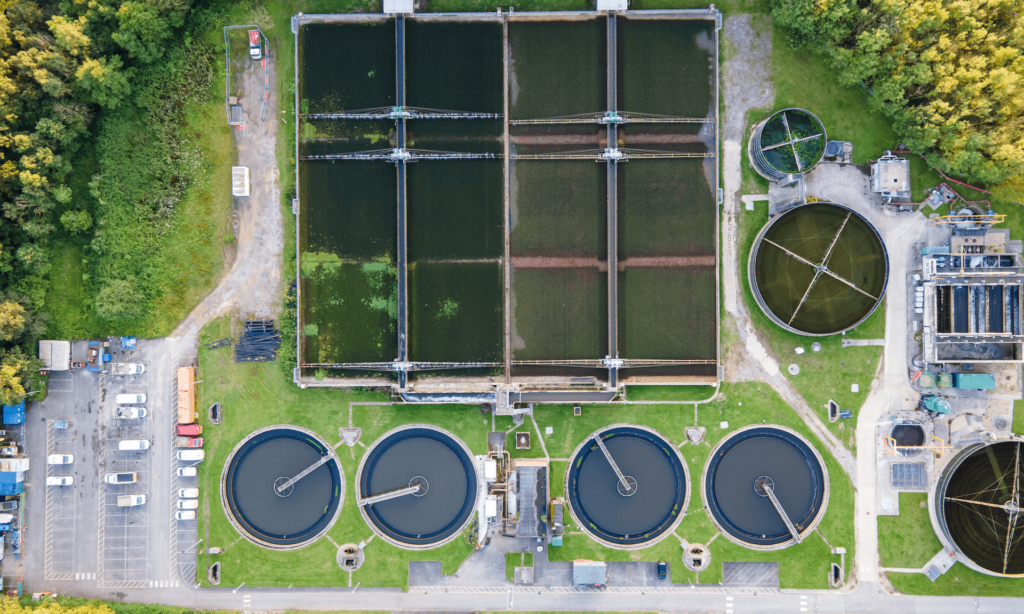Fostering Sustainable Practices to Ensure a Secure and Resilient Water Future
Water resources are under increasing strain due to a combination of factors such as climate change, erratic weather patterns, and agricultural practices. This mounting pressure has led to water scarcity and a decline in water quality, posing significant challenges to global sustainability. To address these issues, new regulations and technologies are emerging, offering opportunities for more sustainable water recycling and wastewater treatment.
In July, the European Union implemented comprehensive standards for agricultural water reuse, signaling a significant step toward sustainable water recycling. Similarly, in San Francisco, large development projects now require onsite water reuse systems. These new regulations are not just regional initiatives but represent a pivotal opportunity to drive sustainable wastewater reuse on a global scale.
The Vital Role of Wastewater Treatment in Protecting Public Health
Wastewater treatment facilities play a crucial role in maintaining public health by removing harmful contaminants from wastewater before it’s discharged into the environment. These contaminants include pathogens like bacteria, viruses, and parasites, which have the potential to cause various diseases, from cholera to hepatitis. To ensure the treated water is safe for non-potable applications like irrigation and toilet flushing, treatment facilities employ various disinfection and filtration methods to eliminate these pathogens.
Historically, chlorination has been the dominant method for wastewater treatment. However, concerns about the hazardous byproducts of chlorination and their environmental and health impacts have prompted governments and municipalities to seek alternative disinfection methods. Among these alternatives, Ultraviolet (UV) treatment has emerged as a popular and highly effective choice.
Chemical-Free UV Treatment for Wastewater
The UV disinfection equipment market is poised for substantial growth, with water and wastewater disinfection applications driving much of this expansion. UV wastewater treatment offers several environmental advantages over chlorination. One of the most significant benefits is UV’s ability to eliminate harmful contaminants from water without the need for additional chemicals. UV light disrupts the genetic material of microorganisms, rendering them incapable of reproduction, all without chemical intervention.
Governments can significantly enhance their environmental stewardship by embracing chemical-free UV treatment for wastewater. This approach keeps harmful chemicals out of ecosystems and alleviates the strain on freshwater resources. Treated wastewater can effectively substitute fresh water for various applications, including irrigation, industrial processes, and groundwater replenishment.
UV treatment is particularly relevant for the process industry, where water quality and resource management are of paramount importance. Industries such as chemicals, pharmaceuticals, and manufacturing rely heavily on stringent water treatment processes to maintain their operations. UV treatment offers a sustainable and effective means of ensuring water quality within these sectors, reducing their dependence on freshwater sources and promoting environmentally friendly practices.
Moreover, implementing UV treatment systems can substantially reduce the discharge of untreated or inadequately treated wastewater into natural water bodies, thus safeguarding the water quality and ecological balance of these vital ecosystems. This aspect is of utmost significance in maintaining a sustainable approach within the process industry, which often impacts natural water bodies.

UV Treatment Advancements Enhance Water Quality, Efficiency, and Safety for Industrial Applications
Over the past two decades, advancements in UV technology have significantly expanded its capabilities. UV treatment has proven highly effective in combating Cryptosporidium, dispelling earlier misconceptions about its efficacy, even surpassing that of chlorine. Additionally, UV treatment effectively removes emerging contaminants from wastewater, such as residues from pharmaceuticals and personal care products, ensuring the quality and safety of water used in various industrial processes.
The modular and compact nature of UV treatment systems makes them easily integrable into existing wastewater treatment plants, often without the need for extensive infrastructure modifications. This cost-effective solution operates rapidly, ensuring efficient treatment even during peak-demand periods and delivering a consistent supply of treated wastewater for reuse. This attribute is especially advantageous for industries with fluctuating water requirements, as it ensures reliability and consistency.
From an operational standpoint, UV treatment significantly reduces the potential for accidents, mitigates risks, and safeguards workers. The elimination of the need to handle dangerous and flammable chemicals, a prevalent requirement in traditional wastewater treatment processes, greatly contributes to maintaining safety standards within the process industry.
UV wastewater treatment has played an instrumental role in enabling regions to achieve their sustainability goals. For instance, Singapore’s NEWater initiative relies on UV treatment to produce high-grade reclaimed water, contributing to water sustainability and reducing reliance on imported water sources. Similarly, the Orange County Water District’s Groundwater Replenishment System employs UV treatment to provide a sustainable and drought-resilient water supply, thereby reducing the need for imported water.
Fostering Sustainable Practices to Ensure a Secure and Resilient Water Future
Embracing UV treatment as an integral component of water reuse strategies represents a transformative step for governments, municipalities, and the process industry on a global scale. By harnessing the power of UV technology, wastewater treatment facilities contribute significantly to the construction of a more sustainable and water-conscious future for communities and industries across the world.
By Giuseppe Faretra, Regional Sales Manager for West and Central Europe, Nuvonic
Share: